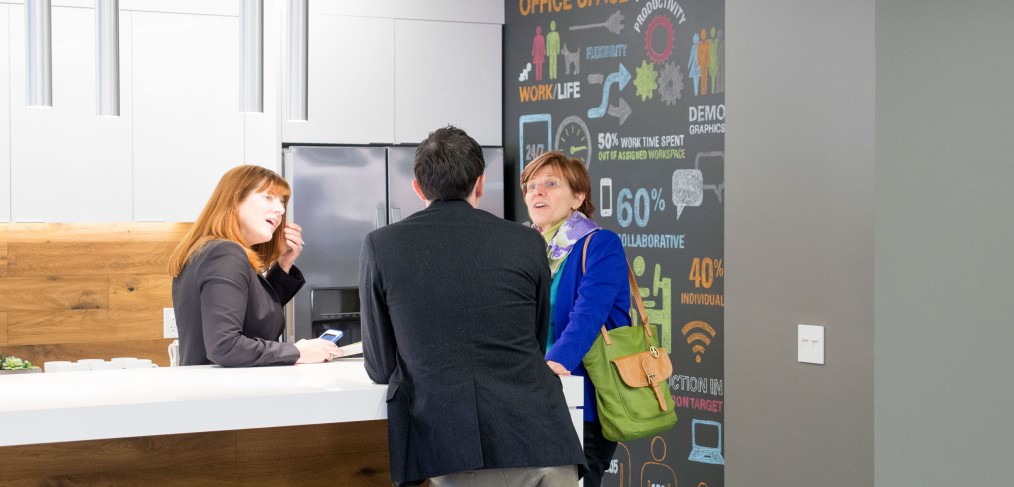
Generations (Still) at Work
I know this isn’t “new” news, but it’s always a fun topic to revisit: the impact of many generations working together in one place…and what that means for workplace design. Employees come with a wide range of backgrounds:
- Ethnically diverse
- Greater gender equality
- Wider age range
- Varying job types and work styles
Today, there are five generations in the workforce, each with its own work ethic, career path, expectations for work-life balance, and preferred means of communicating, to name just a few unique characteristics:  Veterans are just about out of the workforce, but those that remain are typically in positions of power and influence. By 2025, Gen Y employees, now in their 20s, will represent 75% of the workforce. This generation values work-life fit more than compensation growth or skill development. SHRM reports the retirement of Baby Boomers as one of the top five concerns for companies, with 68% of human resources professionals indicating that this will have a major impact on the workforce over the next five years.
Veterans are just about out of the workforce, but those that remain are typically in positions of power and influence. By 2025, Gen Y employees, now in their 20s, will represent 75% of the workforce. This generation values work-life fit more than compensation growth or skill development. SHRM reports the retirement of Baby Boomers as one of the top five concerns for companies, with 68% of human resources professionals indicating that this will have a major impact on the workforce over the next five years.
For years the impending retirement of the Baby Boomer generation has been causing businesses angst. Due to the Great Recession (and other factors), many Boomers chose to delay retirement. The economy has seemingly picked up and/or Boomers are tired of the workforce, or realizing that their health is a gift that does not last forever and more and more are starting to retire. This not only has major impacts on business continuity but also has consequences for the physical workplace. 
The workplace can help support knowledge transfer in a variety of ways. Creating a variety of spaces that support both formal and informal collaboration and encourage interaction and relationship building can provide ways for junior and senior staff to learn from one another.
Another impact of the aging population is that workers (of all ages) are serving as caregivers to older adults. This results in greater need for flexibility in the workplace as well as reduced working hours/overtime. Survey results confirm this need/desire: Four out of ten professional men work more than 50 hours per week and, of these, 80% would prefer working fewer hours, and two out of three women without children would rather have more free time than make more money at work. 
With respect to designing for a variety of generations in the workplace, the key is to understand the existing culture while keeping in mind the desired future culture. As we discussed in the Top Trends for 2014, Generation Y has some pretty clear preferences about the workplace:
- They aspire to work in a “bright, light and open working environment.”
- They are generally more open to shared workspaces rather than dedicated individual workspaces: 27 percent of respondents indicated that they are ready to share a desk; an additional 18% indicated that they would consider desk sharing.
- They like open, informal collaborative spaces: 73 percent of respondents note that they favor informal meeting areas to formal conference rooms for meeting.
Generational differences are part of the way people work, but many other characteristics play in as well; therefore, it is important to understand characteristics of each generation, but not generalize. Seek solutions that solve across generations. Issues that are typically consistent across generations (although for different reasons) include:
- Ergonomics/workplace comfort/health and wellness
- Technology (use and understanding varies)
- Knowledge transfer (for business continuity for older generations and active engagement of younger generations)
- Preference for face-to-face collaboration
- Need for flexibility
What are you finding with regard to generations in your workplace?
